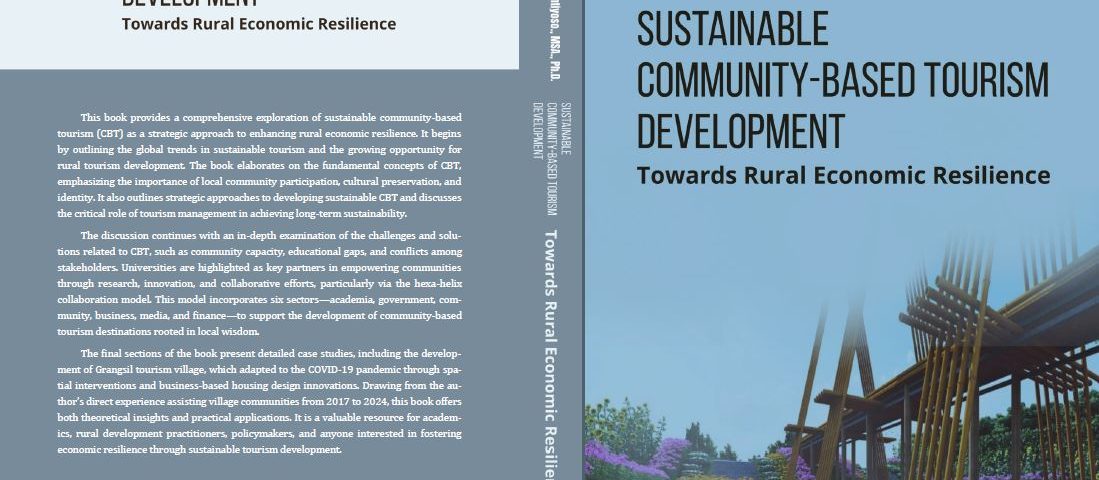A new book has been published.
This book focuses on the active participation of local communities as the main actors in managing local resources, culture, and traditional wisdom as tourism assets. This approach provides tangible economic benefits for rural communities while encouraging sustainable environmental preservation and strengthening their cultural identity. Direct community involvement in tourism planning, management, and promotion creates a strong sense of ownership so that tourism management can run independently and consistently. However, the success of this approach is not without challenges. This book examines the challenges that often hinder the development of strategic partners. Universities are a bridge between local communities and the various resources needed to develop the village’s potential. In this context, universities act as facilitators, companions, and providers of relevant knowledge and technology to support community-based tourism development.
This book guides the government, business actors, academics, and the community to create a resilient tourism ecosystem. A case study of Grangsil Hamlet shows how a holistic approach can be applied to develop community-based tourism sustainably. This approach provides economic benefits, encourages environmental preservation, and strengthens cultural identity. Moreover, this book invites various parties to collaborate in building a more inclusive and sustainable tourism future. With the strategies and Practical recommendations presented, this book is expected to inspire actual steps in strengthening the foundations of a more solid, resilient, and competitive rural economy in the era of globalization. This book can also provide enlightenment for stakeholders, both from the government, business actors, and the community, so that they can understand the importance of collaboration in creating tourism that is not only profit-oriented but also brings social and ecological benefits. Thus, this book becomes a relevant reference to encourage the transformation of villages in Indonesia towards more inclusive and sustainable development.


